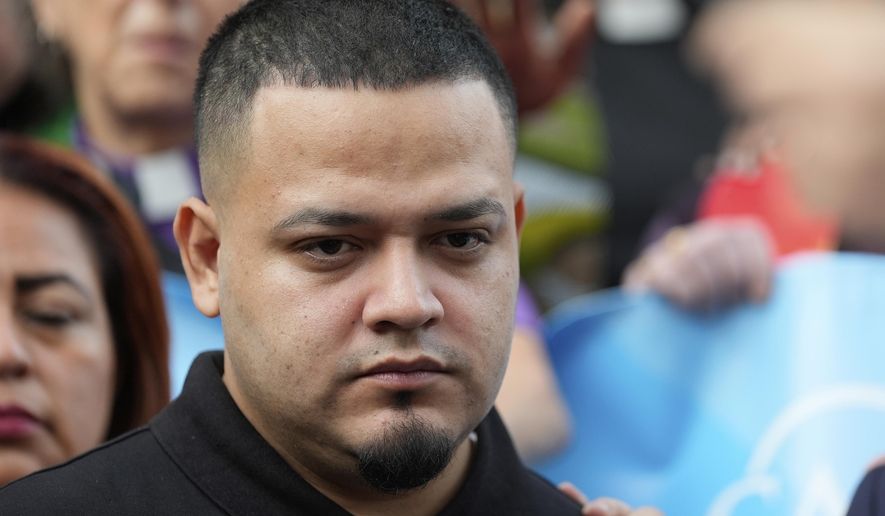A U.S. federal judge has again stopped the Trump administration from deporting Kilmar Abrego, a migrant whose case has become a symbol of America’s immigration battles. Abrego, originally from El Salvador, was ordered to stay in the United States at least until October while the court reviews his petition.
The ruling came from U.S. District Judge Paula Xinis in Maryland during a Wednesday hearing. She extended an earlier order that blocked the government from sending Abrego out of the continental U.S. for now. The judge also required that Abrego, who is being held in an Immigration and Customs Enforcement detention center in Virginia, must remain within 200 miles of her courthouse in Greenbelt, Maryland.
Abrego’s case has taken many unexpected turns. Earlier this year, U.S. authorities accused him of gang involvement and deported him to El Salvador, despite a judge’s order that he should not be sent there. He was later returned to the United States in June to face charges of transporting migrants who were living in the country without legal status. He has pleaded not guilty and denies being part of any gang.
The Trump administration is now seeking to deport him to Uganda, a country where Abrego has no family or connections. His lawyers argue that this move is unlawful and violates his rights. They plan to fight the deportation through multiple legal channels and also said Abrego will apply for asylum in the United States through a separate immigration court process.
Abrego, a 30-year-old sheet metal worker, was living in Maryland with his wife, their child, and her two other children, all of whom are U.S. citizens, before his arrest. His lawyers say the government’s treatment of him shows a wider pattern of the Trump administration using executive power in immigration cases in ways that undermine constitutional due process.
Judge Xinis said she will issue a final ruling within 30 days of the next hearing, scheduled for October 6. Until then, Abrego cannot be deported. This decision gives his legal team more time to prepare their defense and to challenge the government’s plans.
Abrego’s story highlights the struggles many migrants face under strict immigration policies. His case has drawn attention because it not only involves questions of legal process but also the government’s attempt to deport him to a country with which he has no ties. For migrant rights advocates, the case reflects what they see as harsh measures targeting vulnerable families.
The court’s decision provides a temporary relief for Abrego and his family, but the legal battle is far from over. The outcome in October will decide whether he can remain in the U.S. or if the administration will succeed in sending him away once again.

